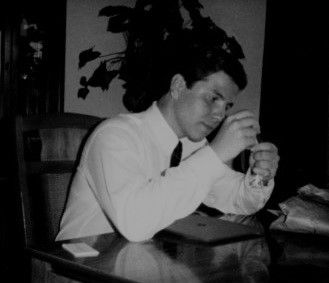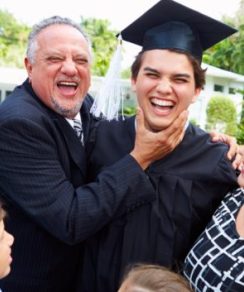For students who are blind or have low vision, transitioning to a community college or university can be a significant challenge. According to the National Federation of the Blind, 30.6% of people in the U.S. between the ages of 21 to 60 who have a visual disability have completed some college or have attained an associate’s degree. Only 14.9%, however, have earned a bachelor’s degree or higher.
This evident break in the educational system for students with visual impairments begs the question: What can be done to promote improved outcomes for these students?
“Academic institutions can better serve college students who are blind or have low vision by helping each student bridge the gaps that exist in their knowledge base, overall awareness, and career aptitude,” said Daniel Ackley, founder of the Sensory Research Foundation (SRF).
SRF is a nonprofit organization that promotes success for students in Illinois who are blind or have low vision by focusing on research, education, and philanthropy. The organization utilizes relevant research to determine what these students need to succeed in the academic system and beyond, and provides programs and resources to local communities.
The foundation offers mentorships and specialized transition programs to students with visual impairments to assist with the important transitions from school to college or school to work. It also supports future educators through scholarships for students who are pursuing a degree in special education. Additionally, SRF awards assistive technology and other essential supplies at no cost to educators for their dedication to teaching students with visual impairments.
Ackley and his team will conduct a research study in 2020 to gain further comprehensive knowledge of the experiences of college students who are blind or have low vision. The project will explore the complex issue of employment after college for students in Illinois who are visually impaired. Scholars have suggested that academic achievement for students who are blind or have low vision is high, yet the employment rate for this population is not where it should be.
 The gap in the relationship between academic success and employment for this student population is due largely to employers’ apprehension to hire individuals with visual impairments. This disparity can be alleviated through mentorships, programs, and other on-campus or community resources. Academic institutions can also help promote employment by providing employers and students who have visual impairments with opportunities to interact and encourage non-discriminate employer attitudes.
The gap in the relationship between academic success and employment for this student population is due largely to employers’ apprehension to hire individuals with visual impairments. This disparity can be alleviated through mentorships, programs, and other on-campus or community resources. Academic institutions can also help promote employment by providing employers and students who have visual impairments with opportunities to interact and encourage non-discriminate employer attitudes.
Success in the employment search also greatly depends on the individual student’s self-determination, which is why SRF supports the programs and the people who help build the confidence and capabilities of students who are visually impaired.
“Individual students need to know what they can do, develop critical thinking competencies, acquire basic skills, have role models, experience the college life, set goals, and realize that there are many, many, jobs available to them in many, many areas of the economy,” Ackley said.
Top photo provided by the Sensory Research Foundation.
Bottom photo provided by Daniel Ackley and shows Ackley when he was a senior in high school in 1986. Ackley had dual intraocular lens implant surgery that year to correct his congenital cataracts.




Leave a comment